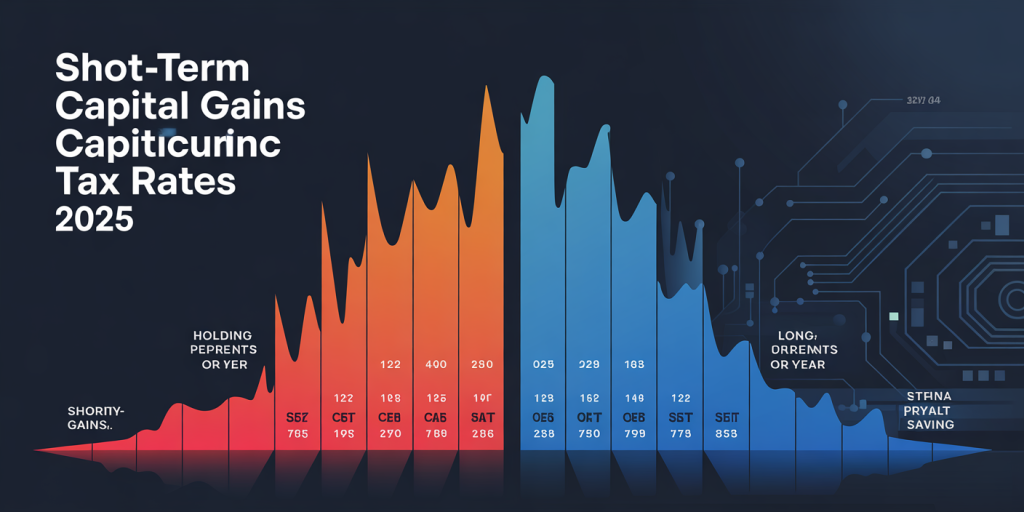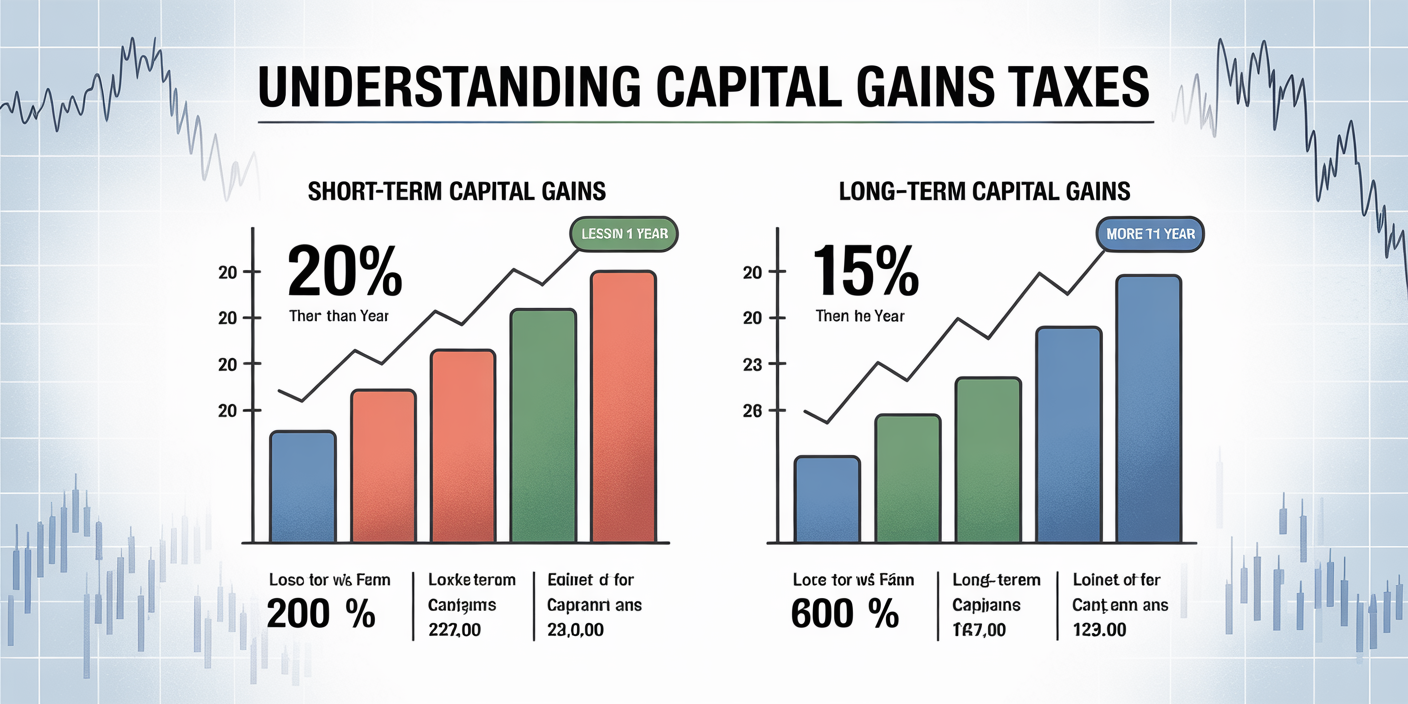2025 Tax Guide for Cryptocurrency Investors in the U.S.
Anúncios
As cryptocurrency continues to gain traction and mainstream acceptance, investors face complex tax implications in the U.S. With the IRS continuously refining regulations and enforcement practices, it is essential for crypto holders to understand how to comply effectively while maximizing tax efficiency. This 2025 tax guide serves as an essential resource for cryptocurrency investors navigating reporting requirements, taxable events, and recent legislative updates.

Cryptocurrency is classified as property for tax purposes by the IRS, meaning that gains and losses must be reported similarly to stocks or real estate. However, the unique nature of digital assets—including tokens, NFTs, and decentralized finance (DeFi) transactions—adds layers of complexity. According to a 2023 IRS report, over 3 million taxpayers reported virtual currency transactions, with compliance scrutiny increasing annually. Understanding tax obligations, calculating gains accurately, and maintaining precise records are critical.
Anúncios
Cryptocurrency Taxable Events: What Triggers a Taxable Transaction?
In U.S. tax law, not every cryptocurrency movement is taxable; instead, certain “taxable events” trigger recognition of gains or losses. The most common taxable events include:
Anúncios
1. Selling cryptocurrency for fiat currency (e.g., selling Bitcoin for USD) 2. Trading one cryptocurrency for another (e.g., exchanging Ethereum for Bitcoin) 3. Using cryptocurrency to purchase goods or services
For example, if an investor buys 1 Bitcoin for $20,000 and later sells it for $30,000, the $10,000 difference is a taxable capital gain. Alternatively, if the investor trades that 1 Bitcoin for 15 Ethereum, the transaction is considered a sale at fair market value, and the capital gain or loss must be calculated accordingly.
A practical instance from recent IRS enforcement cases involves investors failing to report crypto-to-crypto trades. In 2024, several taxpayers were audited after the IRS detected unreported transactions through third-party reporting. This underscores the importance of thorough tracking and reporting of each taxable event.
Capital Gains Taxes: Short-Term vs. Long-Term Treatment
One of the most critical aspects for crypto investors is understanding how capital gains taxes apply based on the holding period. The IRS distinguishes between short-term and long-term capital gains: Short-term capital gains apply to cryptocurrencies held for one year or less and are taxed at the investor’s ordinary income tax rate, which can be as high as 37%. Long-term capital gains apply to cryptocurrencies held for more than one year, benefiting from preferential tax rates between 0% and 20%, depending on the taxpayer’s income bracket.

Consider this example: Jane purchases 5 Ethereum at $2,000 each in January 2024. In August 2024, she sells all five for $3,000 each, realizing a $5,000 gain. Since she held the assets for less than one year, this $5,000 gain is short-term and taxed as ordinary income. Had Jane waited until January 2025 to sell, she would qualify for long-term capital gains rates, likely saving thousands in taxes.
Below is a comparative table outlining tax rates for short-term and long-term capital gains in 2025:
| Income Bracket | Short-Term Capital Gains Rate | Long-Term Capital Gains Rate |
|---|---|---|
| Up to $44,625 | 10%-12% | 0% |
| $44,626 – $492,300 | 22%-35% | 15% |
| Over $492,300 | 37% | 20% |
These rates are based on the IRS tax brackets for single filers for 2025 and highlight the tax planning potential of holding crypto assets longer than a year.
Reporting Cryptocurrency on Your Tax Return
Cryptocurrency investors must accurately report their digital asset transactions on their tax returns, primarily using IRS Form 8949 and Schedule D. Form 8949 requires detailed reporting of each taxable event, including date acquired, date sold, proceeds, cost basis, and gain or loss.
One challenge investors face is accurately determining the cost basis, especially if the crypto was acquired through multiple purchases at varying prices. Failing to use appropriate accounting methods like FIFO (First-In, First-Out) or Specific Identification can lead to overreporting gains or losses.
The IRS also updated Form 1040 to include a mandatory question about virtual currency ownership. When filing, taxpayers must answer this question affirmatively if they transacted any cryptocurrency during the tax year.
A real-world application comes from taxpayers who use aggregated reports from crypto exchanges like Coinbase and Binance. While these reports help, discrepancies often exist due to transfers between wallets or DeFi interactions. Expert tax software such as CoinTracker or TokenTax can streamline reconciliation and ensure accurate reporting.
Tax Implications of Crypto Earnings: Mining, Staking, and Airdrops

Besides capital gains, crypto investors may earn additional income through activities like mining, staking, and receiving airdrops. These income streams have unique tax treatments distinct from typical gains.
Mining cryptocurrency is treated as self-employment income by the IRS. Miners must report the fair market value of mined coins as ordinary income at the time they receive them, plus possible self-employment taxes. Additionally, miners can deduct business expenses related to their mining operations.
Staking rewards and airdrops are generally taxed as ordinary income upon receipt at the fair market value. Subsequently, if the taxpayer holds the coins, any gain or loss upon disposal becomes a capital gain or loss.
For example, John stakes 100 ADA tokens and receives 5 tokens as rewards monthly. Each month’s 5 tokens are taxable income based on their value at distribution. If John holds the 5 tokens and sells them later, he must also report capital gains or losses on the sale.
According to a 2023 IRS bulletin, increased focus has been placed on DeFi and staking income, with audits targeting undeclared income from these sources. Thus, maintaining detailed records of dates and values of these transactions is essential.
Handling Losses and Tax-Loss Harvesting Strategies
Cryptocurrency investments can be volatile, often resulting in losses. The IRS allows investors to deduct capital losses to offset capital gains, and if losses exceed gains, up to $3,000 can be deducted against ordinary income annually.
Tax-loss harvesting involves selling assets at a loss to offset gains realized elsewhere, reducing overall tax liability. For example, if Maria sells $10,000 worth of Bitcoin at a loss of $4,000 but has $6,000 in gains from other crypto sales, her net taxable gain drops to $2,000.
However, investors should note the wash sale rule, which disallows claiming a loss on a security sold and repurchased within 30 days. Currently, the IRS has not definitively applied the wash sale rule to cryptocurrencies, but the proposed legislation in 2024 seeks to extend wash sale provisions to digital assets.
| Tax-Loss Harvesting Example | Amount ($) |
|---|---|
| Capital gains from Bitcoin sales | 10,000 |
| Capital losses from Ethereum sales | (4,000) |
| Net capital gains | 6,000 |
| After tax loss harvesting | 2,000 |
Investors should consider tax-loss harvesting as a strategic tool and consult tax professionals to avoid pitfalls.
Future Perspectives and Ongoing Regulatory Developments
The cryptocurrency landscape is rapidly evolving, and with it, the tax framework continues to adapt. The 2025 tax year marks an increased emphasis on compliance, with the IRS investing in blockchain analytics tools to detect underreported or unreported.
Legislative proposals such as the Crypto Tax Reform Act aim to clarify many ambiguities, including definitions of hard forks, airdrops, and DeFi transactions, while also potentially introducing new reporting standards. Additionally, the potential extension of the wash sale rule to cryptocurrencies would significantly impact tax planning strategies.
Experts predict more robust third-party reporting requirements from exchanges and wallet providers. Currently, IRS Form 1099-K and 1099-B reporting thresholds have lowered, meaning more investors will receive official transaction reports, enhancing transparency but also increasing scrutiny.
From a policy standpoint, the U.S. government is seeking to balance fostering innovation with ensuring tax compliance. As cryptocurrency becomes institutionalized, clearer guidance is anticipated that could simplify the tax process for average investors.
In conclusion, staying informed about ongoing regulatory changes, diligent recordkeeping, and proactive tax planning will be indispensable for cryptocurrency investors in 2025 and beyond.



Post Comment